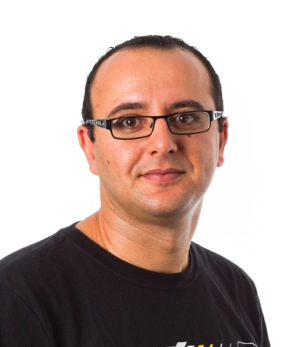Those Little Spammy Mobile Apps
 Dali Kaafar
Dali Kaafar
NICTA, Australia
Thursday, July 23, 2015
2:30 p.m., ICSI Lecture Hall
Mobile App markets are populated with spam apps, which reduce the users’ quality of experience and increase the workload of app market operators. The latter resort to removing those apps, upon user complaints, or to denying the developers’ publication approval requests by relying on continuous human efforts to check the app compliance with anti-spam policies. Apps can be “spammy” in multiple ways including not having a specific functionality, unrelated app description or unrelated keywords and publishing similar apps several times and across diverse categories. Through a systematic crawl of a popular app market and by identifying a set of removed apps, we propose a method to detect spam apps solely using apps’ metadata available at the time of publication. We first propose a methodology to manually label a sample of removed apps, according to a set of checkpoint heuristics to reveal the reasons behind apps removal. This analysis suggests that approximately 35% of the apps being removed are very likely to be spam apps. We then map the identified heuristics to several quantifiable features and show how distinguishing these features are for spam apps. Finally, we build an Adaptive Boost classifier for early identification of spam apps using only the metadata of the apps. By applying the classifier on a set of apps present at the app market at the time of our crawl, we estimate that at least 2.7% of the App Market is constituted of spam apps.
Bio:
Dr. Mohamed Ali (Dali) Kaafar is a research leader at the Mobile Systems Research group at NICTA, Australia’s largest ICT research organization. He contributes to research and development in Security, CyberCrime prevention and Online Privacy with a focus on mobile devices and wearables security and privacy. His research interests also include Internet Measurement and system performance modelling. He is also a visiting professor of the Chinese Academy of Science, ICT Beijing. Previously, he held the position of senior researcher at the Privatics team at INRIA Grenoble in France, and a researcher in the University of Liege. He obtained his Ph.D. from INRIA Sophia Antipolis in 2007 where he pioneered research efforts on the security of Internet Coordinate Systems. He is the main investigator and Responsible of several European and Asia-Pacific Research projects. For further information, please visit http://www.nicta.com.au/category/research/mobile-systems/people/mkaafar/.
